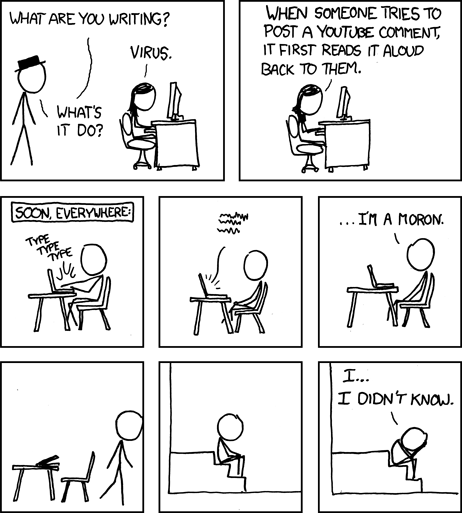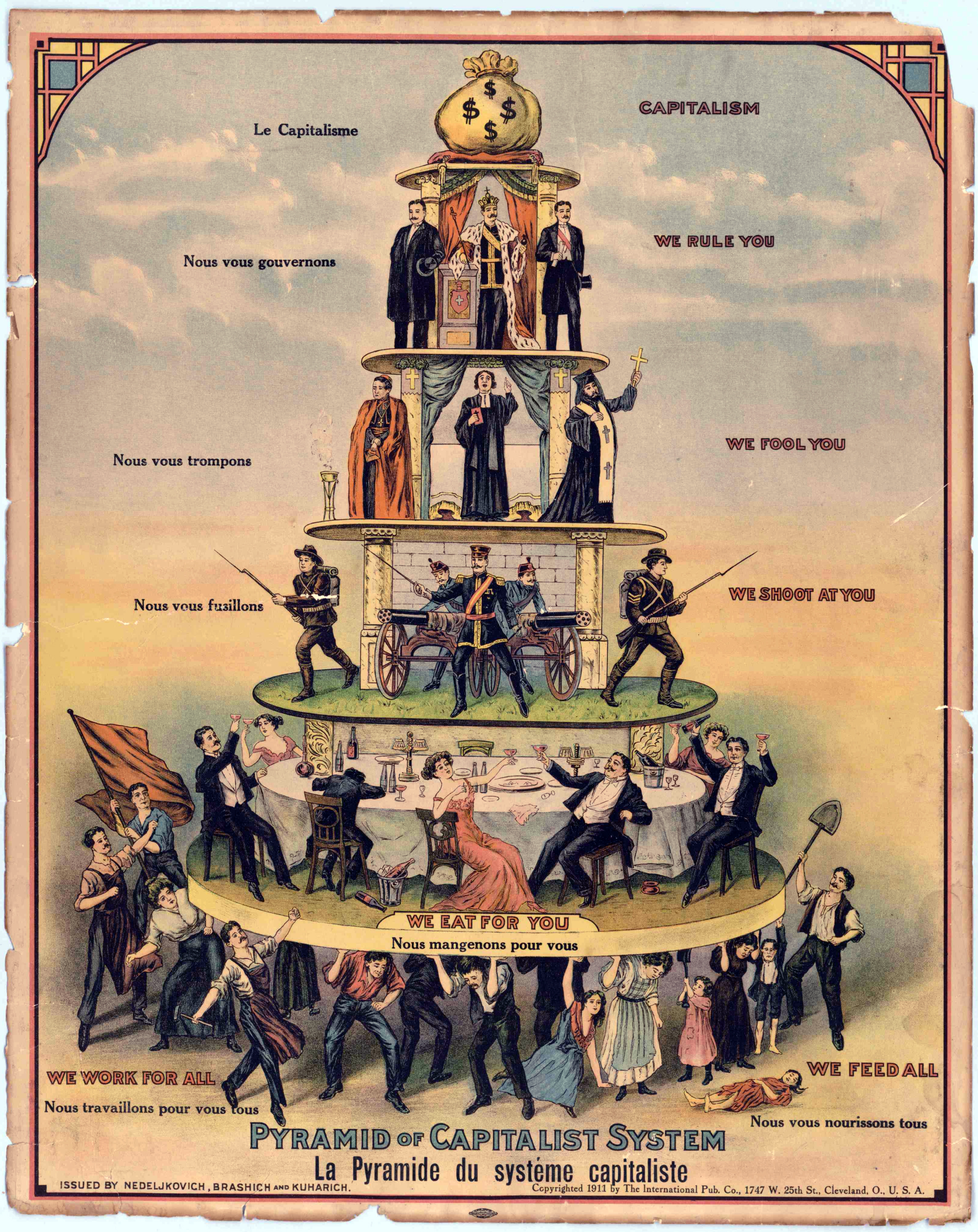I belong to that category of anthropogenic global warming (AGW) skeptic that is skeptical of all sides in the debate.
A better way to put it is that I'm interested in anthropogenic and natural causes of climate change and what to do about them.
I remember that the fear in the 70s was of "global cooling". A very interesting page on wikipedia is on Global Dimming. Stop reading me now, go read that, it's interesting, trust me, regardless of what you think of carbon credits.
I'm distressed that the satellite temperature data we have only starts in 1979, right after that cooling period, and frustrated that even the satellite data seems to be inaccurate and subject to revision.
The ground station temperature data is almost hopelessly polluted by the urban heat island effect, the changes in tracking methods (whitewash, siting and paint problems) over the last century are disturbing, and Hansen's methods and data adjustments nearly impenetrable.
Really good work on the ground station issue and temperature tracking methods is being done by volunteers at: http://www.surfacestations.org/. This particular chart of measured error in the surface station data is really interesting:
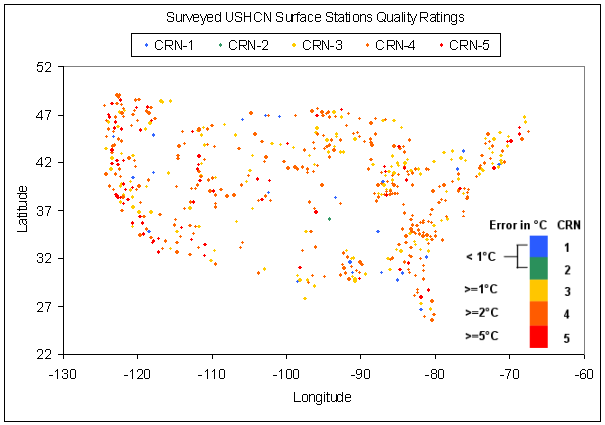
There's even a google earth mashup and photo gallery of every station surveyed, and a howto on how to join the effort. My hat is off to the amateurs in this project.
There is an open source effort going on that is trying to pick apart the software that is being used to analyze global warming. (I can't find it this morning, but I am very happy that the code is out there, being independently analyzed, even improved. More science needs the input of the open internet and open source programmers)
I have tried hard to find sites that seem reputable that are doing non-consensus research. I like:
Real Climate, Watt's up with that and Climate Audit.
... because alternate and falsifiable hypotheses are what science is all about.
Update: When I first wrote this I committed a cardinal sin in not posting any pointers to non-global-warming-skeptical sites. New Scientist, a nearly complete convert to AGW, tackles many myths with great success. As always, I enjoy the comments, and the ongoing research into bad data behind the 45-79 cooling trend.
At the moment I'm willing to defer judgment on the amount of global warming that is anthropogenic until the middle of Solar Cycle 24, which will be a few years yet. Sunspots do seem to correlate with the earth's temperature, although research is ongoing. See: Maunder Minimum.
Cycle 24 is quite delayed.

The controversy over the effects of Sunspots can only be resolved by more data and time. The whole climate change field needs more data and time and less politics.
Secondly I've concluded that many major valleys in global temp are related to catastrophic events such as asteroid impacts and volcanic eruptions. It will take just one wayward asteroid to render this whole debate moot. I wrote a piece once, trying to be morbidly funny, about encouraging more volcanoes to blow. It turned out to be a somewhat valid approach...
It's harder to figure out the peaks. I buy that we are in a long term warming period, with periodic downticks. Based on the solar data, I think a downtick is coming up, moderated by AGW only somewhat. How moderated remains to be seen, but I've moved to the tropics because I prefer heat over cold.
For the record, I don't agree with the hockey stick theory of runaway global warming.

This makes the whole GW debate much-less-life-threatening and great fun, and you'll find me arguing in favor of AGW with a Republican and against with a Democrat simply because I believe in the primacy of doubt.
As for CO2 levels, I'm concerned but not alarmed. (I hate that the most commonly published graph starts at 280 ppm and ends at 380 ppm, which shows a much more alarming slope than reality) CO2 is good for plants. We need more plants. And less people. And nuclear power. And solar/wind/geothermal energy. I'd favor all these things even if global warming didn't exist. Flattening mountains/polluting rivers for coal, and going to war in the Middle East for oil has no appeal.
And that said, I have difficulty buying into CO2 as the major GW cause. Other compounds and processes are potentially far more potent for heating and cooling.
Meanwhile... the decline of life in the seas is well documented and world threatening. Peak fishing was in 1988. I'd like it if there was someone of the stature of an Al Gore - or better Jacques Cousteau - talking coherently about it... because we'll be down to eating plankton and jellyfish before long if we don't do something about it.
The pirates in Somalia got their start in the early 90s because they needed to defend their fisheries from international fishing fleets.
Lobster used to be food for the poor.
A crash of the economy would be good for Mother Earth, methinks.
Bonus link: Some debate about alternative energy
(This post started as a failed comment on Doc's blog. Hopefully I've figured out trackbacks now)
I've been closing out a lot of pieces lately with song lyrics, because, well, because - poetry and music carry feeling that is impossible to express in numbers and graphs.
Today's tune-age comes from The Door's "Strange Days" record. The final track was When the Music's Over... a portion of which goes:
What have they done to the Earth?
What have they done to our fair sister?
Ravaged and plundered and ripped her and bit her
Stuck her with knives in the side of the dawn
And tied her with fences
And dragged her down
Labels: global warming, science
Bailout passes, move along, nothing to see here
Well, something had to be done. The very uncertainty caused by Congress over the bill was driving the markets insane, although perhaps all the economic bad news, like the rise in unemployment, and decline in car sales - all mostly due to the recent run-up in energy costs - remain major issues.
(Artist's note - the modified photograph above is taken from the La Times story about the passage of the bailout bill. The range of the facial expressions above inspired the thought bubbles. I would love to know who the people pictured actually are, and what they actually thought. Anyone?)
For me this past week gave me a pair of interesting questions. The first one involves the importance of the LIBOR spread, the second, I can hardly express, yet. I am chasing down the data and formulating the question, but the numbers I want are the total square footage of housing in the US, by year, over the last fifty years. (both new and existing construction)
As for the LIBOR, I found numerous inaccuracies in the coverage of the "credit crisis" - reporters kept calling the rate, not the spread, a "record", when in fact, even at the peak (one day at about 7%), it wasn't even close to historical highs, and far lower than last year, on average. I've been trying to find a source for spread data as well the number of ARMs that would reset to get a grip on the real impact of higher LIBOR rates.
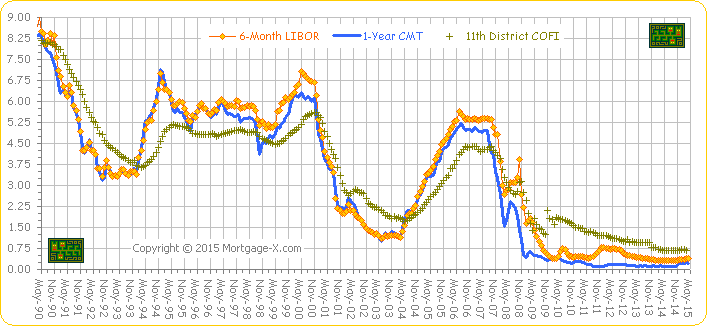
I wonder what has to happen to bail out california?
In other news, Michael Bloomberg is running for dictator for life in NYC.
- "I think the focus on the $700B bailout is wrong. It's been portrayed as a bailout of Wall Street, which is a highly unpalatable idea for middle America--and rightly so. But thinking about it as an attempt to keep the credit market liquid is more palatable--and, in my view, a bit more accurate." - Brian Clapper
That doesn't make the House bailout bill palatable, however. A pig in the poke - even with lipstick - is still a pig in the poke. If the market can't figure out how much that debt is really worth, how can the federal government? Ever?
Update: I'm now at page 92 of the revised, 461 page act, and it is considerably better than the one in the House. I'm told my blood pressure will rise from here on out, however...
Update 2 - 7PM: Now at page 142, and need some medication... bad....
Update 3 - 1AM: Finished reading it all, and some of the associated acts, checking some dates of implementation now, some comments after I get some sleep. It passed the Senate long before I finished, there must be some speed readers on the Hill.....
Update 4 - 10AM: I have written a whole series on the events of the past week, trying to make sense of it, it is tagged banking.
back to this morning's rant:
And more centralization - of HOUSING? - in the hands of the federal government does not sound very good to me. Seeing the housing side of the problem devolve to the states strikes me as saner, and constitutional.
Suspending the Mark to Market accounting rule, as many have suggested, is nothing more than cooking the books until after the election. Real numbers are required to make real decisions.
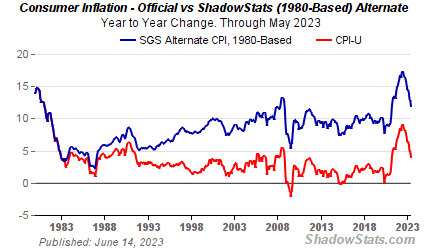
As for fixing the credit crunch, raising rates would be a sane answer. Normal interest rates are too low. I am scared to calculate what financing the federal debt would be like if interest rates reflected the reality of risk in this market, but that is the market mechanism. Raising rates goes against the conventional wisdom of the proper thing to do in a recession, but with 44% of the federal paper held outside the US, there needs to be some mechanism to spur investment in the face of objectively evaluated risk.
Update 5: By saying the above I was not saying that rates needed to go up, but that rates going up would reflect the perceived risk in the economy. The classically "right" answer is to inflate the currency in times like these. I was pointing out that the size of the overseas holdings is something fairly new in Keynesian finance, and wondering what incentives those investors had to stay in an inflated currency. OK, back to the original post....
Anyone notice that the original - Paulson - proposal - was better than the House's in that it only reimbursed corporations BASED IN THE USA? Somebody had to lose in this shell game and Paulson picked the overseas investors and companies like Halliburton, in Dubai, to take the hit harder than the taxpayers. Congress "fixed" that after some pithy commentary from China - (of all the links I posted thus far today that was the most interesting) - and on the trade deficit.
The game is rigged to favor inflationary policies over taxation. I have a modest counter proposal - why not pay off all 962 billion of the usurious credit card debt under condition that the people holding that debt cut up their credit cards? Eliminating the interest payments on that alone would save at least 100b a year in interest payments, which many would use to make house payments, and the corresponding inflation would prop up asset prices. I realize that this makes about as much sense as the free silver movement, but I judge the benefits to the American people and hit on the banks to be more effective way of sharing the pain and moral hazard than what is currently on the table.
Note: I called this "A modest proposal". Some more out of the box thinking is needed.
Maybe we already are in a stagflation period like 1973.

I still can't help but think, in the wee hours of the morning, this whole hoo-rah is a weapon of mass distraction unleashed by parties unknown for purposes as yet unknown. I keep searching out the corners of the internet for some sign there is something else going on - noting details like the 600+B budget resolution that passed without a whimper, the wimpy web broadcaster bill that also passed, and noting that the NORCOM 1st brigade has gone active in the US.
I can't help but think upon how Rome tried to control its legions, by banishing them to the outer provinces, and what Julius Caesar did....
- "Right now, greasing the credit market seems to be the best bet, however that's accomplished. Lowering the central bank lending rates hasn't helped; the banks take the extra cash and hoard it, to shore up their balance sheets. It's time for something else, even an imperfect something else." - Brian Clapper, again being saner than I.
The national debt clock cracked 10 trillion dollars today, even before the vote. It is now at:

One of the things that really, really bothered me about seeing Sweeney Todd turned into a movie last year is that it became a story about two unlovable murderers rather than the scathing social satire of love, betrayal, and revenge on corruption that it was in the original stage version. By showing the corrupt classes Hollywood utterly ruined the song "A little Priest", and eventually, the movie. I highly recommend the stage version.
From "A Little Priest":
TODD:
Mrs. Lovett, how I've lived
Without you all these years, I'll never know!
How delectable!
Also undetectable!
LOVETT:
Think about it!
Lots of other gentlemen'll
Soon be comin' for a shave,
Won't they?
Think of
All them
Pies!
TODD:
How choice!
How
Rare!
TODD:
For what's the sound of the world out there?
LOVETT:
What, Mr. Todd?
What, Mr. Todd?
What is that sound?
TODD:
Those crunching noises pervading the air!
LOVETT:
Yes, Mr. Todd!
Yes, Mr. Todd!
Yes, all around!
TODD:
It's man devouring man, my dear!
BOTH:
And [LOVETT: Then] who are we to deny it in here?
It seems like I'm the only one commenting, however, that has actually read the darn bill in question. I pointed out two of the major flaws in it in a previous blog entry, and I'm going to elaborate on the more minor one of them tomorrow, after I get some sleep. (in short, I don't think the "federal property manager" idea is constitutional)
The debate is almost moot at this point. The Federal Reserve already printed the money. All that is left is for the government to make the Fed's actions legal.
Bonus reading for this evening: Post-Soviet Lessons for a Post-American Century by someone that survived the collapse of the USSR. Part II. Part III
Finance lost in space or merely re-orienting for landing?
I don't have to reach further for a metaphor do I? 1.2 trillion dollars of fictitious money evaporated because Congress was unwilling to print 700 billion on a rolling basis to buy up bad assets. Hmm, sounds like the market is evaluating the risk of getting a free handout or not.
Yet for all that, the market rallied nearly 500 pts today. Hmm, how does that add up? Hope springs eternal? Or an evaluation of the eventual size of the bailout?
Yesterday I was getting emails like:
And today it's:
People are pitching the currently high interbank LIBOR rate as a disaster, but when compared 1998 levels it doesn't look so bad. Perhaps that too is an evaluation of risk. Regular interest rates need re-adjustment?

I guess financing all this public debt requires low interest rates, huh? So THAT's how Congress planned to pay for the war this year... the forecast for 2080 looks kind of grim, though... the Bread and Circuses can't last:

The two largest problems I had with the Wall Street Enrichment Act, after reading it (and the 1000+ pages of related legislation - this week has been rather hard on my normal productivity) is eloquently elaborated by these charts. 700 b on a rolling basis meant that trillions of dollars of assets, ultimately could be purchased at a loss to the taxpayer and a profit (or lesser loss) to the bank. Secondly, the very idea of appointing "Federal property managers" to run the nation's rental housing stank of a whole bunch of idelogical "isms" I can't even bring myself to spit out.
Bonus LinkI disagree with many of the points of this article, but the comments are delicious. Also, this letter from Rep Peter J. Visclosky improved my day.
Someone just told me America should just legalize dope, it would mellow everybody out.
228 members of congress grow some balls
And refuse to pass the Wall Street Enrichment Act, even with the TARP (satirically renamed "TRAP") provisions. It rather encourages me that some members of Congress are unwilling to spend a year's worth of WWII in a single day. I'm not shocked it was so few, I was downright surprised that a majority refused....
It rather encourages me that some members of Congress are unwilling to spend a year's worth of WWII in a single day. I'm not shocked it was so few, I was downright surprised that a majority refused....If the Senate can't vote until Wednesday at the earliest, why the rush to vote in the House? Let the representatives of the people - AND THE PEOPLE - read the darn bill before voting on it, for a change. The last rush vote I recall was the Patriot Act, and we know how that turned out.
So far as I can tell from here, capitalism continues to work, overexposed banks are being bought by saner banks at enormous writedowns on assets without it costing the taxpayer a cent.
Regional banks are doing ok. People are still doing their daily lives. There are still help wanted ads. Wall Street isn't Main Street, and NYC is not the center of the world, despite what some think.
Compared with the true cost of handing over financial control of the country to five elite bankers, shortly before a major election, a little delay and thought before fully embracing fascism is in order, don't you think?
Here's some Ron Paul for ya - on Bush's speech and on the House floor this morning, not that you'll see a word of his quoted in the mainstream press.
Paulson said one thing, early on, that really tweaked me. He said: "Credit is the lifeblood of the economy" - and I said, at maximum volume, at 2 in the morning -
And debt is the Albatross hung around all our necks!!
Oh, yea, before I forget, in the middle of all this kerfuffle Congress passed another 600+billion spending bill, with a major increase of military spending for the occupation of Iraq, and also agreed to hand over 25 billion to the automakers.
Where in God's name is the money for any of this going to come from? Can't anybody add?
Bonus link: The Rime of the Ancient Mariner
Update: US savings deposits spiked sharply upward in the 2nd quarter. And people were always bitching about the US having the lowest savings rate in the world.

Hey! We're saving money in banks and not investing in wall street! That sounds prudent. I wonder in what banks those deposits are going?
In the process of being blessed by congress, the 3 page Paulson plan got expanded to 110 pages of legalese...
I'd have had more venom in this blog this past week if the news sites I read didn't have open comments systems, where ordinary people get to say exactly what they think, uncensored, eloquently and in real time.
I pity anyone that reads the popular press on old fashioned newsprint. This bill will pass before a single letter to the editor reviewing it will make a physical paper, and undoubtably be balanced by the editors with a contrasting opinion.
Me, I got as far as the 6th page of the bill before I blew a gasket and had to take a nap.
- (e) PREVENTING UNJUST ENRICHMENT.—In making purchases under the authority of this Act, the Secretary shall take such steps as may be necessary to prevent un-just enrichment of financial institutions participating in a program established under this section, including by preventing the sale of a troubled asset to the Secretary at a higher price than what the seller paid to purchase the asset. This subsection does not apply to troubled assets acquired in a merger or acquisition, or a purchase of assets from a financial institution in conservatorship or receivership, or that has initiated bankruptcy proceedings under title 11, United States Code.
The bill and popular press are conflating the terms "asset" and "debt". While in bank-ese a "debt" may be an "asset", in the real world, debt is debt. What this is all about is issuing more government debt to buy up private debt that is theoretically backed by assets of declining value, in the hope that the government (the people with guns and tanks) can make the debt pay at something closer to its original value.
On to page 7, if my heart can stand it...
update: Some good jokes. I particularly liked the ones about the bell-ringer and balloonist. The parrot in the freezer joke seemed appropriate as well.
I am so happy. This is the first good news I've had all week.

